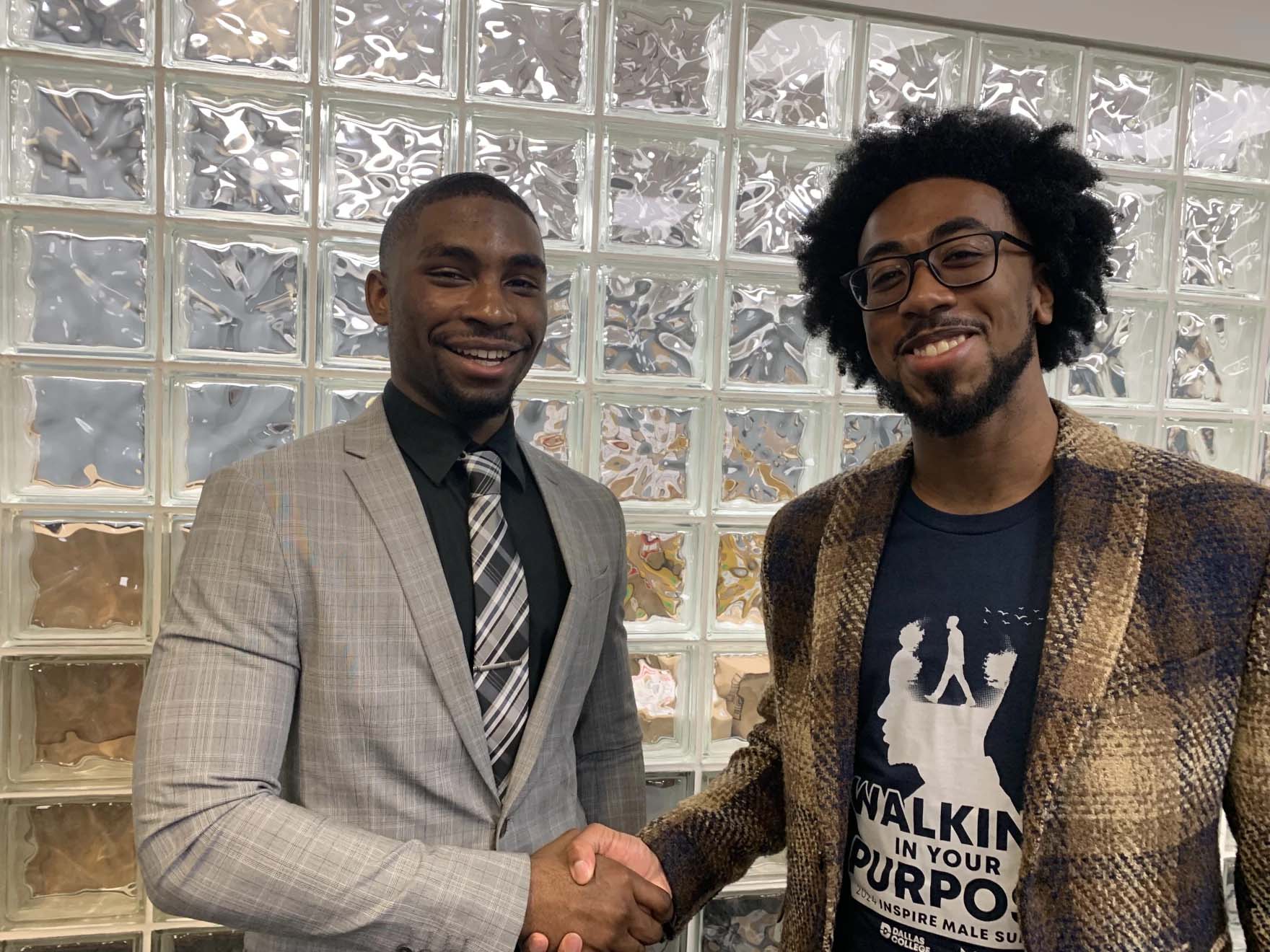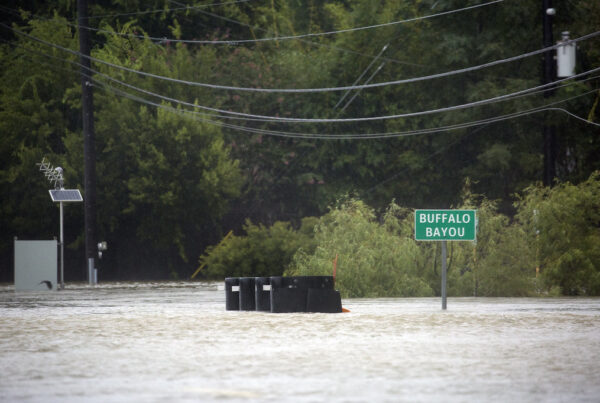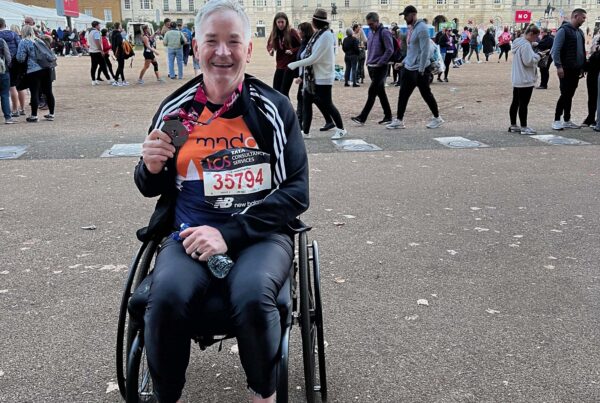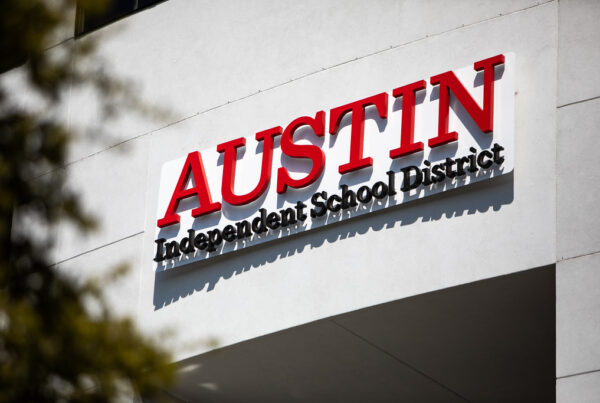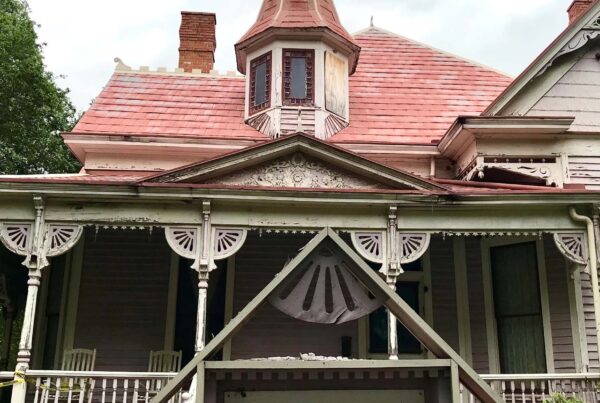From KERA News:
It’s lunchtime and more than a hundred mostly Black and Latino young men are in the auditorium at Dallas College dining on chicken or fish as they listen to local nonprofit leaders speak.
“When school ends, that should not be the end of your learning journey, right?” says Nick Marino Jr., chief hunger officer of Tango Charities, which helps feed people in need. “There should be different things that you’re continuing to develop.”
The group is here for the school’s 3rd annual Male Achievement Program, or MAP, summit. The program aims to get more men to graduate at a time when enrollment is dropping, and men are far less likely to complete college than women.
According to the National Center for Education Statistics, about 60% of associate degrees went to women in 2020, and the gap is projected to widen. And Black and Latino men in particular graduate from community college at the lowest rates.
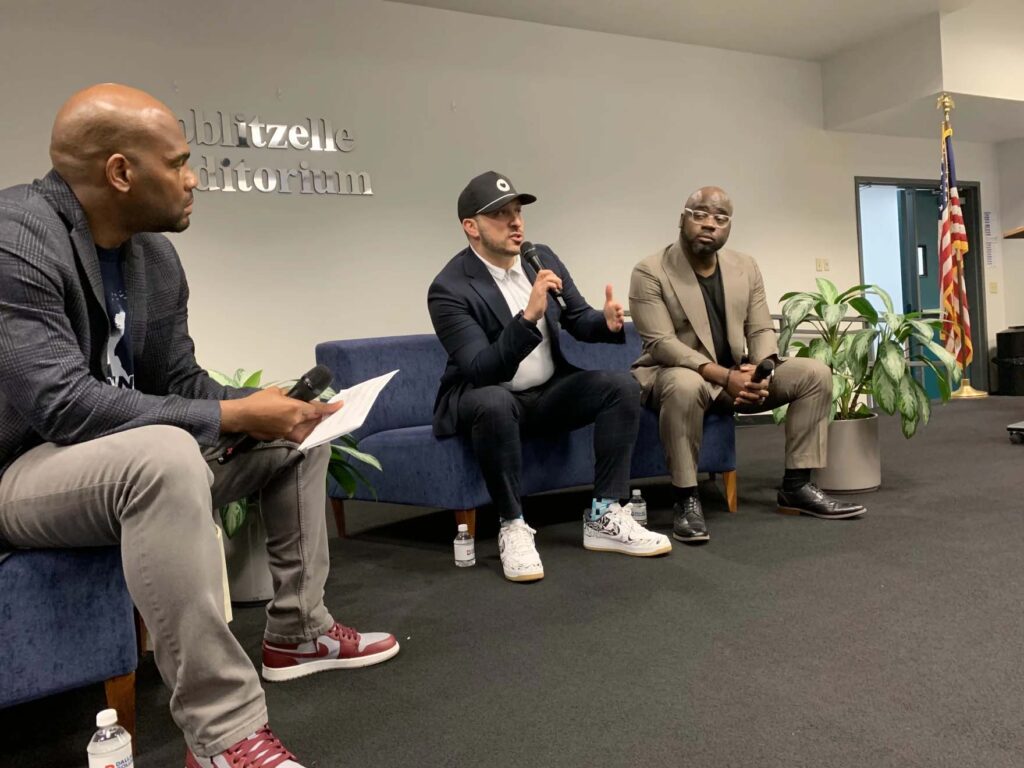
Tim Maiden, vice president of Comerica Bank and co-founder of the Maiden Foundation; Nick Marino Jr., Chief Hunger Officer of Tango Charities; and Adam Powell, president Communities in Schools speak during Dallas College’s MAP summit on March 22, 2024.
Bill Zeeble / KERA
Dallas College has long provided more tangible assistance to help students in need — like free DART passes and emergency financial help for things like car repairs, said Chancellor Justin Lonon.
“If you have a car and bust a fan belt on your car, for a student, I can’t afford to get that fanbelt fixed, which means I can’t get to class, I can’t get to work, I can’t get my child to childcare,” he said. “I might have to drop out. That’s why at Dallas College we provide things like emergency aid.”
MAP complements those efforts, providing more emotional support. Lonon said there are a lot of reasons many men don’t graduate – they might have family obligations, or a job. A lot of students at Dallas College are part-time.
“The reality is, is that it’s life that gets in the way for our students,” he said. “It’s what happens outside the classroom. That’s why we focus so heavily on some of the wraparound support services to help students on their life journey.”
Terrod Shelton got some of that help while attending Dallas College.
“My car was actually totaled,” he said.
Shelton was OK, but not the car. Thanks to the school’s emergency aid, he was able to keep his job, his apartment, and stay in school, even if it didn’t replace the car.
To Shelton, the emotional benefits from MAP were even more important than the money.
“The finance piece? It was a factor, but that’s not what kept me,” he said. “What kept me was more of a community. And I think that’s what the Male Achievement Program did, was provide a community, to give me a reason to return.”
MAP is kind of like a fraternity — it emphasizes academic success through mentoring programs aimed at those in underserved communities. It teaches leadership and professional and financial skills, while encouraging participants to support each other.
Last month’s summit brought together current and prospective students still in high school. Dallas businessman Tim Maiden, who along with his brother sponsored the event, said that gets them “more comfortable being a collegiate environment,” he said.
“Once you remove that barrier of a fear to achieve at that level, that’s one barrier,” he said. “I think what MAP does is it provides that unity of people trying to achieve together.”
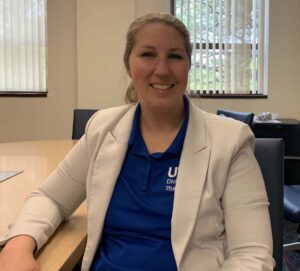
Ashley Purgason is vice provost of Student Success at the University of Texas at Arlington. She said the community building aspect of programs like MAP help students succeed.
Bill Zeeble / KERA
Ashley Purgason, vice provost for student success at UT Arlington, says that’s why programs like MAP and her school’s own “Mavericks of Distinction” program work.
These experiences allow a student to develop a sense of belonging. They’re often going on a learning journey with peers or with mentors that are guiding them along the way. So there’s a community building aspect to it. Students that participate in these opportunities often have, higher success rates than, than students that may not participate.
That’s the most recent finding from Dallas College. It said after efforts like MAP, male enrollment rose 3% from 2022 to 2023, and graduation rates grew 11%. And, more students in MAP stayed in Dallas College year to year, than those not in the program.
Terrod Shelton graduated in May of 2023 and is now enrolled in UNT. He’s still involved with MAP – these days he mentors 18 year-old Caleb Wilburn, who was a Dallas College freshman 2 years ago.
“I was 16, surrounded by 18-20 and on up,” recalled Wilburn. “And so, through the Male Achievement Program, I was able to be around like-minded individuals, but also, be around people who can hold me accountable to the goals that I set for myself.”
Wilburn’s immediate goal includes finishing his undergraduate degree at Baylor University, where he’s been accepted once he graduates from Dallas College.


